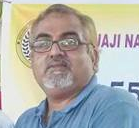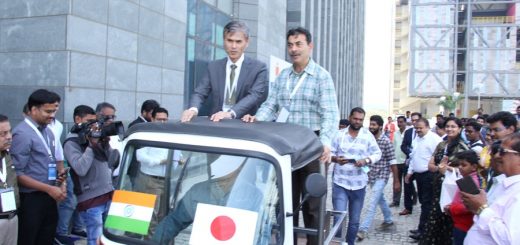Device to diagnose medical conditions from ECG data
 S Vishnu Sharmaa, INN/Chennai, @Svs037
S Vishnu Sharmaa, INN/Chennai, @Svs037
Indian Institute of Technology, Hyderabad has come out with a device that would diagnose medical conditions from ECG data in real time.
Sources say, the equipment consumes less power and can alert doctors and patients about the risk of cardio-vascular diseases (CVD) by monitoring ECG data in real time and do away mortalities.
CVD tops the list of public health concern compared to other diseases and has almost become the primary cause of human deaths, as per a survey of the World Health Organization (WHO).

The main causes are changing lifestyle trends, unhealthy eating habits, tobacco usage, low fruit and vegetable intake and lack of physical activity and lot of stress.
These factors necessitated developing a personalized CVD monitoring device powered by battery backup and with a very low form factor to achieve unobtrusiveness that works under the emerging cyber-physical system setup.
Mr. Vemishetty Naresh. Ph.D. Research Scholar, Advanced Embedded Systems and IC Design Laboratory, Department of Electrical Engineering, IIT Hyderabad and Dr. Amit Acharyya, Associate Professor, Department of Electrical Engineering, IIT Hyderabad have done reasearch on these issues.
Amit Acharyya said CVD is one of the deadliest disease and irrespective of the economy of the country people are getting affected by it.
It is manifested in different forms necessitating the early diagnosis, therapy and prognosis. Hence the proposed work on the classification is going to be of immense help for the society, he said.
They also worked on developing different classification techniques and integrating them to make a generic algorithm. A novel System-On-Chip (SoC) architecture is developed in a low complex way by resource sharing concept for the CVD automation.
Thus the whole system can cover various ECG abnormalities and finally come up with the prototype board which looks similar to as a smartphone at the patient end.
This medical science and technological needs impose many challenges on such device development such as low power consuming system design tradeoff between the on-board processing and RF (Radio Frequency) communication, low complexity analog front-end circuit design and energy harvesting or self-power mechanism to prolong battery life.
There is also a need to develop a robust algorithm to find any synchronization in the ECG waves.
The Researchers overcame these challenges by proposing a novel System-on-Chip (SoC) architecture for CVD monitoring.
Scrutinizing the technical challenges like low-power and low-area for delivering reliable healthcare under resource constraints, they have proposed low-complex Boundary Detection (BD) and Feature Extraction (FE), low-complex f-QRS Detection and Morphology Identification (FDMI) architecture, Rule Engine (RE), and Token based compression technique.
The aim of the Researchers is to take this idea further to the system level from the concept and propose a low-complexity but medically reliable SoC architecture.
The above proposed methodologies are used to extract the essential clinical features from each ECG beat and compared with the standard values to give the binary classification as normal or abnormal.
This work was partly supported by Department of Science and Technology (DST), Government of India under the ‘Internet of Things (IoT) Research of Interdisciplinary Cyber Physical Systems (ICPS) Programme with the Project entitled ‘IOT Based Holistic Prevention and Prediction of CVD (i-PREACT).’




